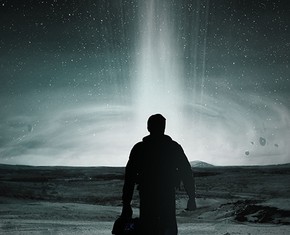The views expressed in our content reflect individual perspectives and do not represent the authoritative views of the Baha'i Faith.
True religion is the source of love and agreement amongst men, the cause of the development of praiseworthy qualities, but the people are holding to the counterfeit and imitation, negligent of the reality which unifies, so they are bereft and deprived of the radiance of religion. . . That which was meant to be conducive to life has become the cause of death; that which should have been an evidence of knowledge is now a proof of ignorance; that which was a factor in the sublimity of human nature has proved to be its degradation. Therefore, the realm of the religionist has gradually narrowed and darkened, and the sphere of the materialist has widened and advanced; for the religionist has held to imitation and counterfeit, neglecting and discarding holiness and the sacred reality of religion. – Abdu’l-Baha, The Promulgation of Universal Peace, p. 179.
In this profound passage, Abdu’l-Baha describes religion—even as he explains why it has not lived up to this definition in practice.
Now, I’m a wordsmith by trade, and rather partial to using words as accurately as possible. The very fact that religion (or any other important word) means so many different things to so many different people gives me great frustration. But I’m flexible, and while my preference would be to use the word “religion” to mean simply the binding together of the hearts of human beings around divine principles of conduct, and to use the terms “dogma” or even “religious dogma” to refer to the dogmatic belief in particular doctrines, I’m open to finding new words if my friends and correspondents can’t bend that far.
So, here’s the question: What words can we safely use?
 Abdu’l-Baha suggests the idea of a Road or Path—a spiritual Path that he recommends we tread with practical feet. Buddha would call it a Dharma, a path to truth. Muhammad advanced the concept of the Din—a transaction or covenant with the Divine by which the believer committed to a journey of transformation and the daily effort to acquire divine qualities such as kindness, mercy, justice, and the like. We might also simply call it a Faith, which perhaps steps back a bit from the community aspect toward the individual relationship with God.
Abdu’l-Baha suggests the idea of a Road or Path—a spiritual Path that he recommends we tread with practical feet. Buddha would call it a Dharma, a path to truth. Muhammad advanced the concept of the Din—a transaction or covenant with the Divine by which the believer committed to a journey of transformation and the daily effort to acquire divine qualities such as kindness, mercy, justice, and the like. We might also simply call it a Faith, which perhaps steps back a bit from the community aspect toward the individual relationship with God.
Many people have said (sometimes with an inexplicable air of superiority) “I’m not religious. I’m spiritual.” I find, as I write this, that my own definitions of “spirituality”, “faith” and “religion” revolve around individual and community relationships. My spirituality is what happens deep inside (whatever the very physical idea of “inside”ness means in this context); it is a quality or condition of my personal inner state. My faith is my relationship with God and His word. My efforts to cultivate transformative virtues bridges those two realities. My religion is my relationship with my fellow Baha’is and, beyond them, all other human beings. What connects the three is how my practice of those transformative virtues strengthens and deepens my relationships with other human beings.
In short, I could say that my religion centers on Baha’u’llah’s statement: “The earth is but one country and mankind its citizens”. That seemingly simple concept covers a world of complexity.
This definition of religion has implications for a relationship between religion and science (which my confrere Stephen Friberg writes much about on our Common Ground Group blog). First of all, there is nothing in the idea of the acquisition of virtues or their application to life and community that violates scientific principle, or eschews scientific process. In fact, scientific process is enshrined, if you will, in the Baha’i writings:
The third principle or teaching of Baha’u’llah is that religion and science are in complete agreement. Every religion which is not in accordance with established science is superstition. Religion must be reasonable. If it does not square with reason, it is superstition and without foundation. It is like a mirage, which deceives man by leading him to think it is a body of water. God has endowed man with reason that he may perceive what is true. If we insist that such and such a subject is not to be reasoned out and tested according to the established logical modes of the intellect, what is the use of the reason which God has given man? – Abdu’l-Baha, The Promulgation of Universal Peace. p. 106.
Good question, don’t you think?
You May Also Like
Comments

















- killing people with another view or interpretation of their religion;
- sexual abuse by priests;
- not excepting the believe of another prophet,
- starting wars in the name of God.
People can only change their point of view, not only by the words of the Baha’i Faith, but by seeing that the Baha’is do practice their Faith in another way.
If we look at the world with all his (religion based) conflicts, I think of a quote of Abdu’l-Baha :”If religion becomes the cause of ...dislike, hatred and division it were better to be without it”